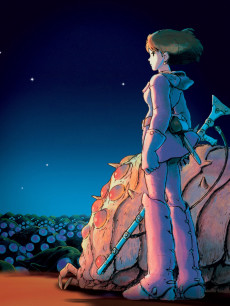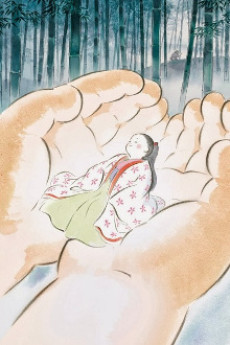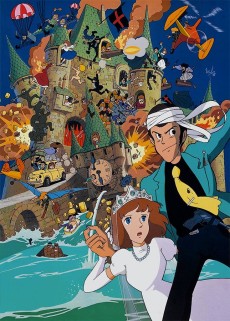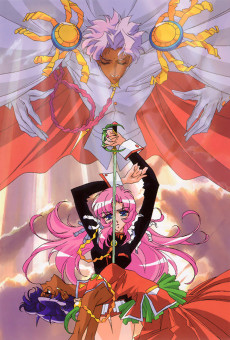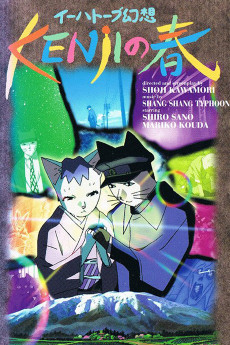ARETE-HIME
MOVIE
Dubbed
SOURCE
OTHER
RELEASE
July 21, 2001
LENGTH
105 min
DESCRIPTION
Confined in the castle tower by her father, princess Arete spends her days watching the world outside her window. Sometimes she seeks out to watch the common people at work. The knights of the kingdom compete for the right to marry her and rule the land by competing to see who can find powerful magic objects made by a long dead race of sorcerers. Arete wants none of this. She longs to meet the common people and travel to exotic lands she has only seen in the books she keeps hidden under her bed. One day the sorcerer Boax arrives in a fantastic flying machine and offers to take Arete as his wife and transform her into a proper princess.
(Source: Anime News Network)
CAST

Arete-hime
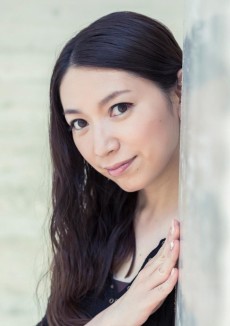
Houko Kuwashima
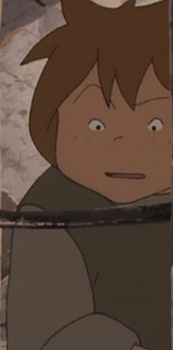
Ample
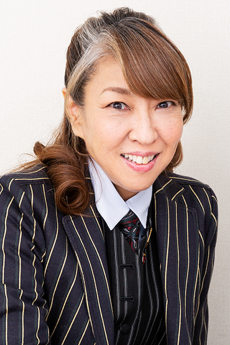
Minami Takayama
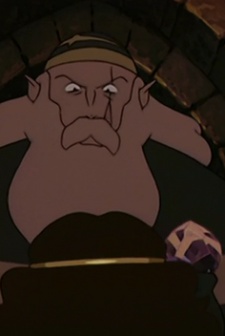
Boax
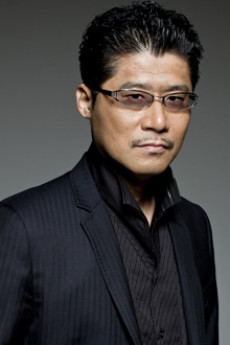
Tsuyoshi Koyama
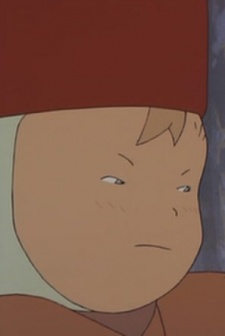
Majo
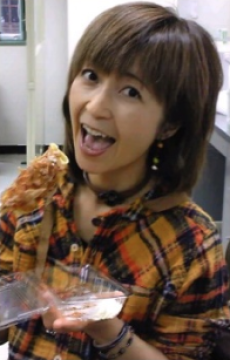
Satomi Koorogi
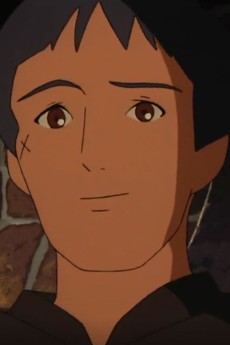
Dullabore
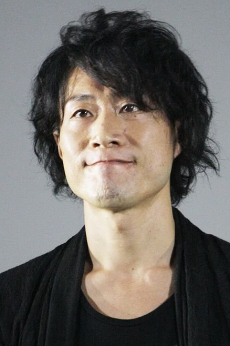
Eiji Takemoto
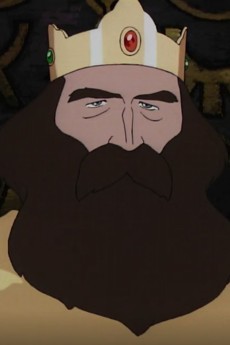
Ou-sama

Takashi Nagasako
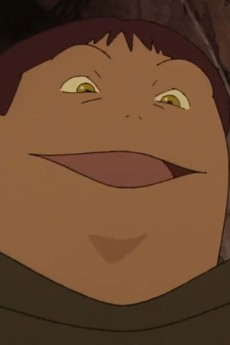
Grovel
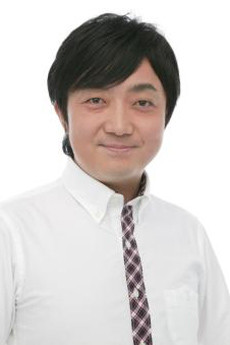
Yuusuke Numata
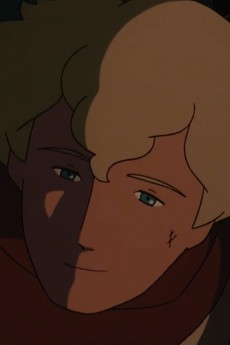
Kinpatsu no Kishi
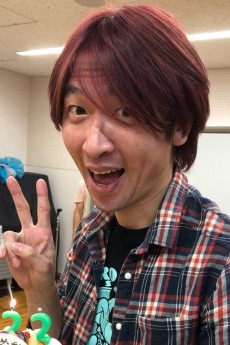
Norihisa Mori
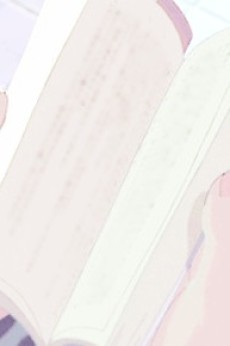
Narrator
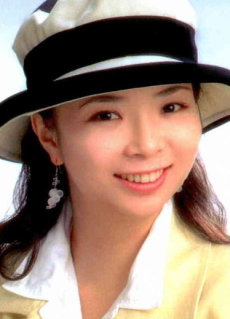
Yuko Sasaki
REVIEWS

megafat
78/100A simple but beautiful story.Continue on AniListOur story follows Princess Arete, who is confined in the castle tower under the instruction of her her father, the king. He demands that Arete should never have contact with the outside world until she meets a potential suitor for her to marry, and uses these suitors to bring him jewels and powerful magical items from a race of long-dead sorcerers in an attempt to win his admiration and the permission to betroth his daughter.
Because of this Princess Arete spends her days watching the world outside of her window. Arete sneaks outside to watch the common people live out their normal lives. One day, a sorcerer named Boax arrives in a fantastic flying machine and offers to take Arete as his wife, trying to transform her into a proper princess. As Arete sit locked in Boax’s dungeon, she soon realizes that there will be no rescue. If she wants to get free, she must discover how to break his spell and escape on her own.
Princess Arete is a lot more progressive than a lot of traditional animated princess movies, such as some of Disney’s filmography. There is no traditional prince coming to save the day, and no real heroics. Arete is the one saving herself, trying hard to figure out how to get out of the situation she is stuck in. It feels like a mix of the traditional Disney princess film and a lot of Studio Ghibli’s films, where our main female character can hold her own, but just on a smaller more minimalist scale.
The whole movie is beautifully put together. The art style, while more muted, looks fantastic, with it’s older European influence. The one thing that really stands out is the gorgeous soundtrack done by Oonuki Taeko and the late Origa.
My only real complaint about Princess Arete is the lull in the middle of the film. After all of the plot points and characters are set up, the middle of the movie spends it’s time not doing much, and it feels like both me and the characters in the movie are just waiting for the inevitable things to happen near the ending of the movie. While it’s slower paced, I can easily see a younger audience maybe getting bored with it depending on their sensibilities.
There isn’t much to say about this film with outright spoiling it, so I’m just going to use this last little bit to tell you that you should check out Princess Arete.

Juliko25
85/100Princess Arete is basically Slow Burn: The Anime. But it's still a very well-made movie that deserves more love.Continue on AniListPrincess Arete is an anime movie whose existence I knew about to an extent, but never actively pursued until now. A blogger I once followed watched and liked it, and I had watched a decent amount of it some time before this, but didn't finish it until this year. Based on a 1983 short story called The Clever Princess written by Diana Coles, Princess Arete tells the story of...well, a princess named Arete whose father keeps her locked in her castle tower, away from the outside world. Many suitors try to win her hand, but Arete has no interested in being married to any of them and wants to experience life outside the castle. Unfortunately for her, an attempt to escape fails, and she finds herself not only married off to a sinister wizard named Boax, she is magically turned into a more submissive princess and taken to his abode in the desert. It turns out the wizard took her in order to prevent a prophecy involving her from coming true and taking away his immortality. Arete needs to find some way to break the enchantment and rediscover herself if she has any hope of escape.
I'm just going to get the main elephant out of the room right away: If you're looking for a fast-paced movie full of action, you're out of luck, as Princess Arete's pacing is VERY slow. Agonizingly so. Boredom and loss of agency/autonomy are huge themes in this movie, so don't you dare go into this movie expecting it to be full of explosions or fast paced action. I'll admit, even I got a little tired of the movie's slow pacing during the middle part, even if I understand that Princess Arete as a movie is trying not to rush one minute of its storyline and actually has proper build-up, something most movies nowdays seem to eschew. As much as I love Princess Arete's devotion to really trying to give its setting and storyline sufficient development, I honestly wouldn't blame anyone if they dropped the movie halfway through just because they're waiting for something to happen. Princess Arete pretty much exemplifies the term "Slow Burn" in every sense of the word. Some may like its slow pacing, others not so much.
However, don't think that Princess Arete doesn't have anything to offer as a movie. For one, the animation, for its time, is absolutely stellar. I can't tell if it was hand drawn or made in the very early stages of digipaint, but the motion and overall look of this movie are absolutely gorgeous. Everything from the characters' costumes to the backgrounds and medieval architecture feel subdued, yet alive and distinct. Even the character designs, while fairly simple compared to more modern stuff, are still relatively down to earth and fit the feel of the movie. Not only that, I love that the producers actually put a lot of thought and effort into bringing the setting to life, showing the various customs and habits of people living in a fantasy-inspired medieval setting, which most media only show one or two scenes of. The people in the background actually feel like they have their own lives and backgrounds outside of what Arete is dealing with, and I didn't notice any glaring stereotypes, so that's also a win right there. The soundtrack, made by the ever awesome Akira Senju, is also a joy to listen to, especially that one Russian song that plays after Arete is magically transformed and sealed away in Boax's castle.
Even the character writing is surprisingly strong. Everyone, from Arete herself to minor characters like Ample and the witch, have a surprising amount of depth and nuance to them, hardly ever reduced to just one-note stereotypes. Even Boax, the villain, actually has an interesting motivation for what he does, though it's mainly revealed at the end. From what I've heard, Arete in the original novel was a lot more rambunctious and happy-go-lucky, and her movie counterpart is much more subdued and reserved, but no less intelligent and proactive, especially after she breaks free from the wizard's spell. Some people may not like that she's basically forced to become a more submissive princess when Boax puts her under his spell, and she spends a good portion of the film in that state, but the movie makes it pretty clear that the point of Arete's character is for her to take back her agency and autonomy, even if it takes a while for her to do so. Hell, apparently Princess Arete is celebrated as a feminist work in Japan, and I can absolutely see why. The premise of a princess being kidnapped by a villain and imprisoned in a castle has been done many times before, to the point of being a cliche at this point, but the nuanced character writing, the deft way the producers handled the moral dilemmas the characters face, and the well-developed setting make Princess Arete stand apart from its contemporaries.
So if you're interested and looking to watch Princess Arete legally in some way, you're in luck! Studio 4°C, the company that produced the anime, actually posted an English subtitled version of the movie on their YouTube page! You have to turn on the CC to see the English subs, and some of the subtitles wind up skipping ahead of some lines, but those moments are thankfully very few in number. But you better hurry though, because it'll only be up for a limited time, until April 17th of this year. Princess Arete only managed to get a Blu-Ray release in the UK, fairly recently at that, and it never got a US release at all. Here's hoping this new exposure it's gotten will change that, especially since companies like GKids and Eleven Arts have started popping up and changing this as of late. Maybe one of them can put Princess Arete out on BD in the US at some point? I hope so, because Princess Arete is criminally underrated and deserves the love and appreciation it deserves, slow pacing or no. Definitely give it a shot if you're tired of the usual movies that rely solely on nothing but action and special effects.

GreenRevue
95/100True magic comes not from spells, but from experiences with others, and from the creations of our hands and our mindsContinue on AniList
Princess Arete is a really great and underappreciated film. Firstly, it's a bit frustratingly compared to Miyazaki's Ghibli, which is understandable, but Katabuchi and the approach of this film are far closer to Takahata (though even that comparison is unfair), even post-this-film-Takahata, and it's aesthetic stylings and pace are more modernised general World Masterpiece Theater than Ghibli. They both spring from similar cloths, but approach the materials differently, and craft different tapestries.
Miyazaki ghibli often goes into lively and emotive fairy tales, more explicitly filled with imagination and wonder (even in The Wind Rises), while Arete intentionally strips away those elements, and slows the pace down. Arete is in ways about fairy tales, but it isn't one itself per se, at least not in the traditional sense, or the expected Ghibli sense.
Arete is pegged as a deconstruction of fairy tales, but I see it as more a construction of a world and mindset that leads to them. I don't feel it necessarily subverts fairy tale tropes like people say, but that's because I don't really view it as a fairy tale. Arete is ultimately about the real, tangible magic that makes the fake magic of fairy tales. Instead of showing us fantasy wonder, it shows us mundane wonder, and when fantasy wonder is shown, it's grounded and portrayed by character reactions to it rather than being the focus itself.
When the dancing hologram in the magical gem is shown at the start, more emphasis is put on the awed reaction of people to it, with slick camerawork, and the lack of reaction of the King. Additionally, when we see the golden eagle at the end, focus is put mainly on Arete's final monologue in response to it, which bullet points the major theme of the film. The wonder she finds is not from the eagle itself, but from pondering the minds that would create it, from understanding it was crafted by human hands and visions. She finds beauty in the mysterious nature of its purpose, and thus the cryptic nature of human minds. Beauty is still from the object, the art, but also, and maybe moreso, the humanity that made it, the skills and process of getting there, what she pegs as "true magic".
It is the film's answer to its own proposed question on the meaning of life, suggesting that there is purpose and creativity to human hands and minds, and beauty in both the process and results. Arete explores the world at the end to experience that. The film of course doesn't shy away from negative factors, negatives to humanities. There is a brilliant scene where Arete watches the town from above, which makes that clear. She finds wonder in the lives of others and the mysteries of their internal and external worlds, but bad things are still there: bullying, a man chained. Arete's conversations with her suitors are very smart in that regard too.
The middle and last acts also further these ideas. The wizard only creates frogs, lacking creativity and passion. Moreover, the Wizard notes he is only copying the magic of others, not creating his own. He sees himself as useless. He is a copier, not an artist. True magic to him and Arete is to create with your own hands and minds. Arete scares the Wizard Boax in that sense, as she has true agency, and represents his failures. While she is creative and passionate, he copies the magic of others, and can't even make his own food. True art is yours.
Similarly, Arete doesn't escape her trance until she crafts her own story from her own memories, as Ample tells her to. Beforehand her art had simply been to pass the time, and staring at a fake window and fake view. She overcomes her block through finding meaning in herself and in her time that she had previously just been passing and wasting.
She shows Boax that this is true magic, by making him recall in his memories when he was happiest. That is real magic, she says. The human mind, and experiences with others. His memories of being with his family by the beach then appear throughout the film's credits. Art and creation are valued, but so are experiences with others. These are what matter.
Ultimately, Arete doesn't show us fantastical wonder in the traditional, expected sense, but instead asks us to craft our own wonder with our hands and imaginations, and appreciate the wonders inherent to others. It's a grounded story of humanity and art. A piece of art about art and purpose and humanity.
The film proposes a beautiful idea, that making stuff is a beautiful thing, not just due to the results, but due to the process. It proposes that while magic is awe inspiring in fiction, the mundane can be too with the right perspective, and that fictional magic can be even more magical when you remember it was conjured by minds and hands that lack it. It's a feminist narrative too, and the book resonated with Japanese women, seeing a girl make her own way in life.
True magic is life experienced with others, and the skills and passions possible when we use our own abilities. True magic comes not from fantasy and spells, but from memories of and experiences with others, and from the creations that spring from our minds and our hands. The process of creating is beautiful, as are the results, which themselves can include the fantasy fairy tale stories that awe others. Arete is not a traditional fairy tale, but it's a film that kind of loves fairy tales itself, the people that make them, and just humanity as a whole. This story gains even more power when you know all of the many difficulties Sunao Katabuchi went through to get to this point and make this film what it is.
SIMILAR ANIMES YOU MAY LIKE
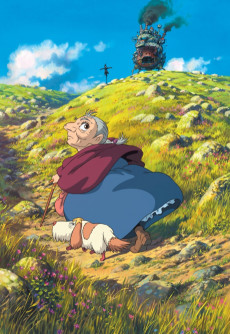 MOVIE AdventureHowl no Ugoku Shiro
MOVIE AdventureHowl no Ugoku Shiro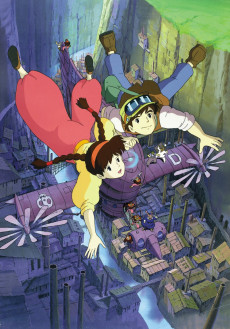 MOVIE AdventureTenkuu no Shiro Laputa
MOVIE AdventureTenkuu no Shiro Laputa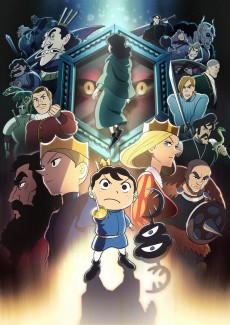 ANIME ActionOusama Ranking
ANIME ActionOusama Ranking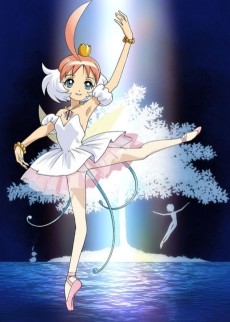 ANIME DramaPrincess Tutu
ANIME DramaPrincess Tutu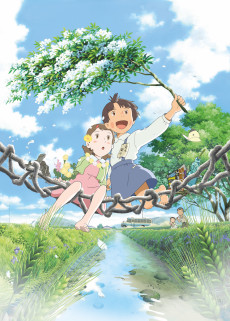 MOVIE AdventureMai Mai Shinko to Sennen no Mahou
MOVIE AdventureMai Mai Shinko to Sennen no Mahou
SCORE
- (3.35/5)
TRAILER
MORE INFO
Ended inJuly 21, 2001
Main Studio Studio 4°C
Favorited by 46 Users

